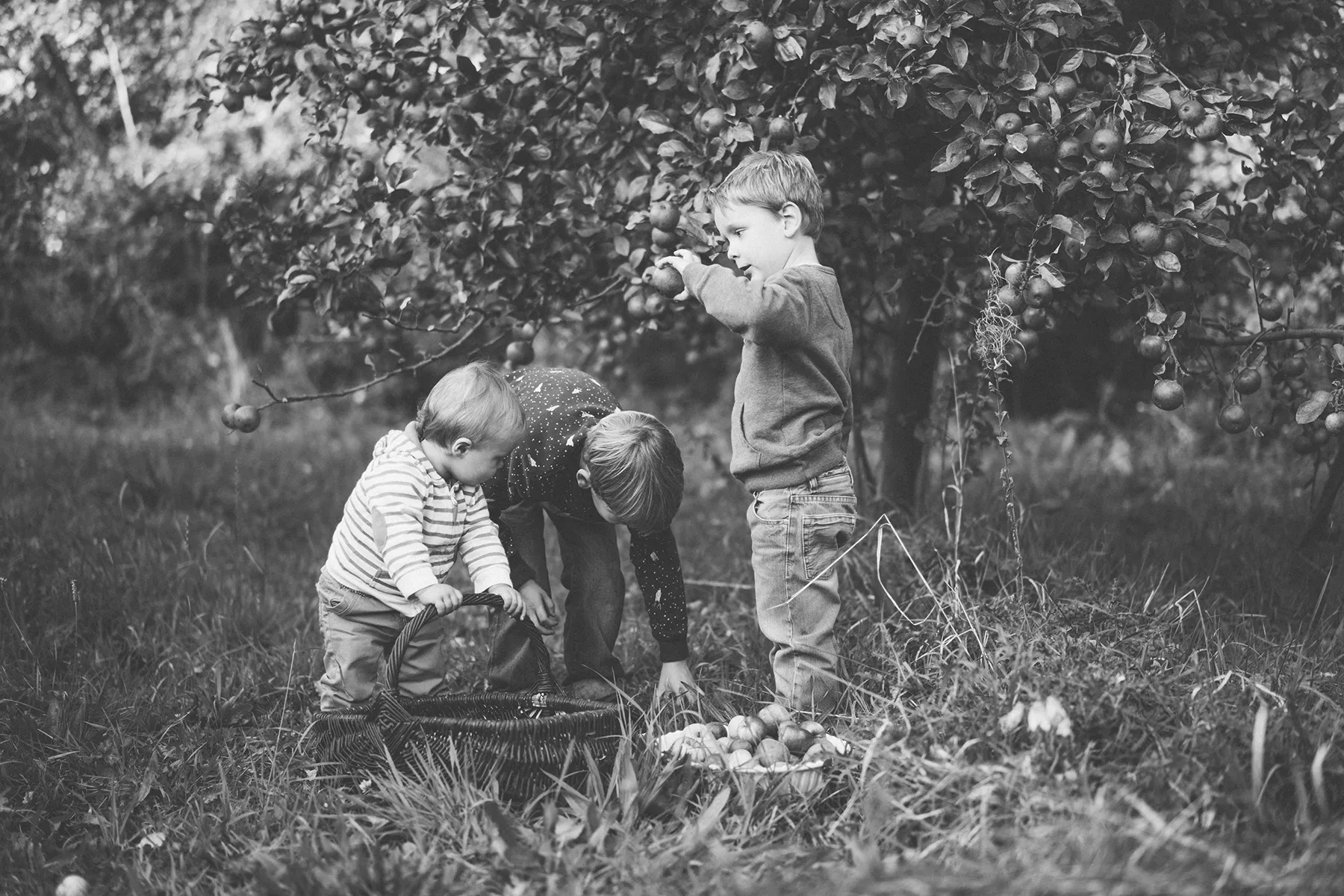
Cider makers for 3 generations, the Bosser family strives with passion to produce one of the most reputable artisanal breton ciders in the region.
Situated in the heart of the country of Bigouden in Pouldreuzic, the Kerné cider house is the oldest of Finistere.
Production had fallen off at the Hénaff canning plant where he worked during the Second World War, so Pierre Bosser, the grandfather, was looking for a second job to make up the shortfall in earnings. The Pays Bigouden, in the south of Brittany, was covered with orchards and it was easy enough to buy any amount of apples. So Pierre Bosser founded his cider-making business in 1947. He then bought his first hydraulic press. The cider used to be sold in small kegs of 30 or 60 liters. All the work was carried out by hand : harvesting the apples, scything the grass in the orchards and most of the cider-making work.
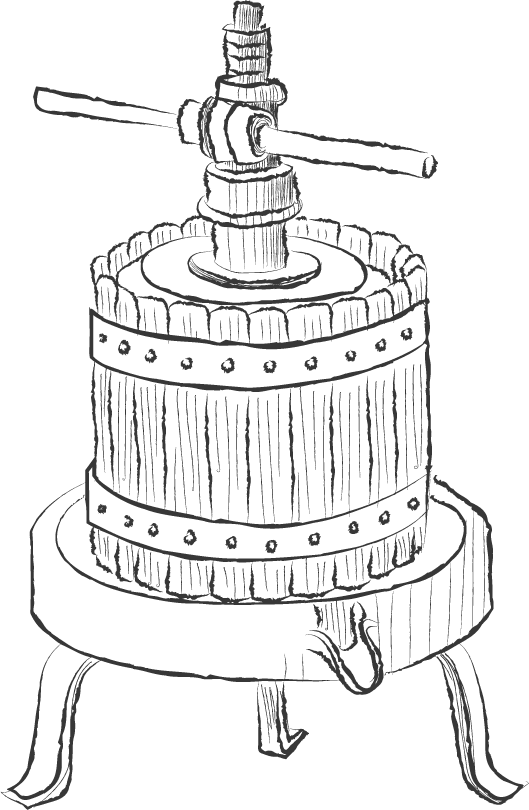
It wasn’t until the beginning of the 1960s, when tourism took off and the number of crêperies multiplied substantially that bottled cider found its place in the market.
A cousin of Pierre Bosser’s opened a crêperie for the summer season at La Pointe du Raz. Bosser cider, then known as, « Cidre de la baie d’Audierne », from the Bay of Audierne, was popular with the customers.
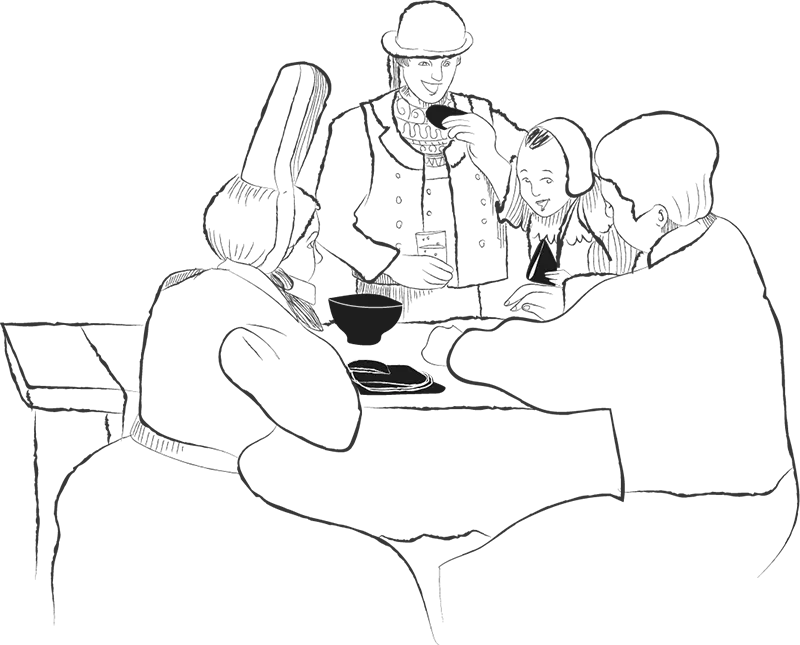
When Yves Bosser took over the family business in 1977, the production had reached about 700 hectoliters of cider a year which had been marketed under the name “ Kerné Cidre de Cournouaille” since 1965. The labels on the bottles were designed by an artist, a cousin of the family who worked at the pottery Kéraluc in Quimper.
Kerné cider is portrayed as a sparkling cider as a way of setting it apart from older brews. As the customer-base had been essentially concentrated in Le Pays Bigouden in the south of Brittany, their ambition was to reach out to the whole of Cornouaille.
From 1985 onwards, Kerné cider substantially increased its output while continuing to modernise production.

In the early 90s, the cider house opened a direct sales outlet at its production site in response to growing customer demand.
Cider is enjoyed at home with crêpes, but also as an aperitif or with a meal.
This shop will enable the cider house to offer tastings of its products on the premises, as well as other products from local craftsmen.


The company was taken over in 2009 by the founder’s grandchildren, Claude, Gérard and Anne Bosser and Kerné, the business employs nearly 20 people. While still managing to maintain production on a human scale, the cider house innovates by regularly offering new apple-based drinks.
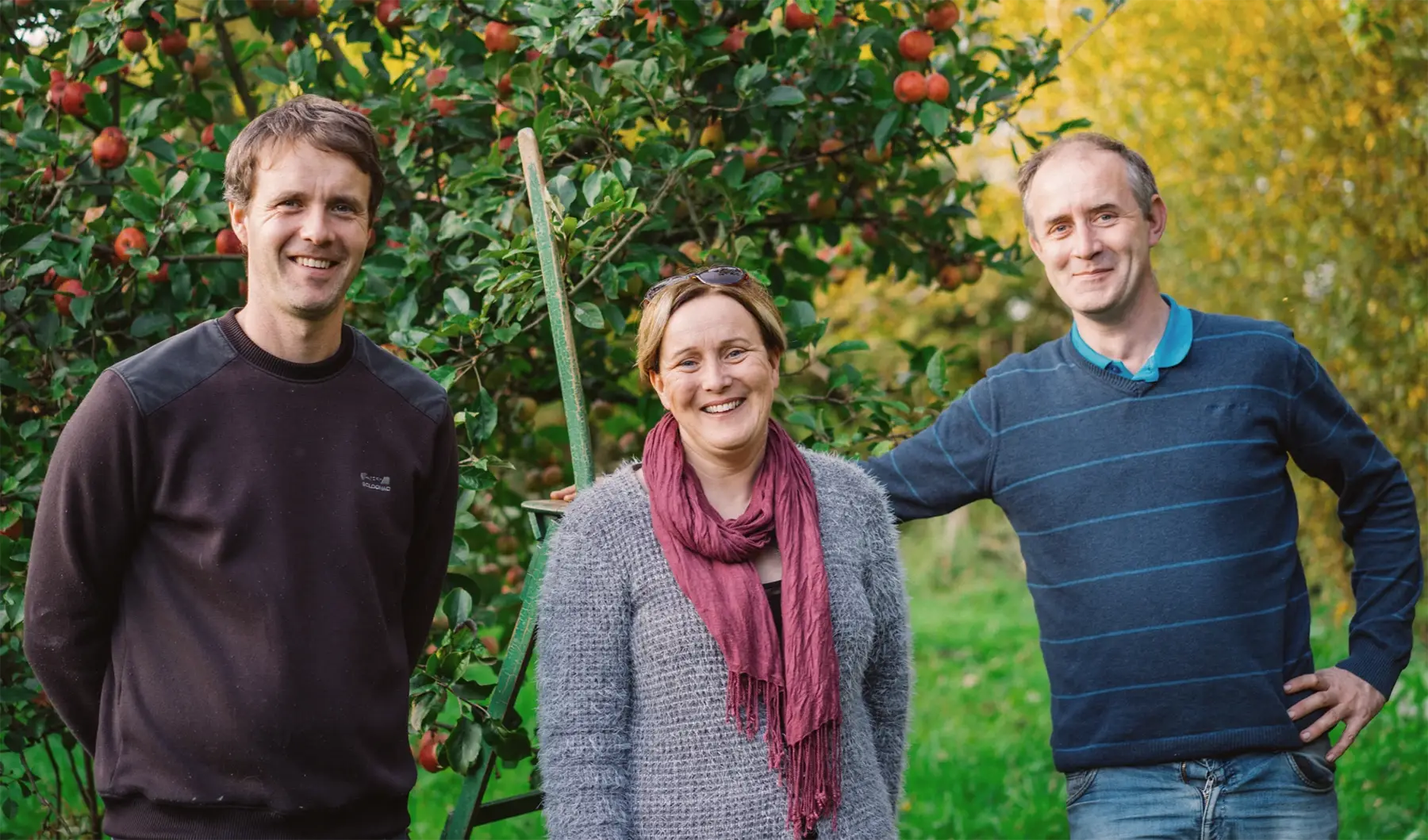
We always select the best varieties of cider apples : Douce Moën, Douce Coët Ligné, Kermerrien, Marie-Ménard, …
These apples come from traditional orchards from the Cornouaille region : Bigouden, Fouesnant, Clohars-Carnoët, Quimperlé, … and from ours owns orchards in Douarnenez, Combrit, Quimper and La Forêt Fouesnant.
The seasons set the pace for orchard work. Pruning is done in winter, followed in spring by flowering and pollination by bees and other insects. Then comes summer, when the fruit soaks up the sun. Finally comes autumn and harvest time.
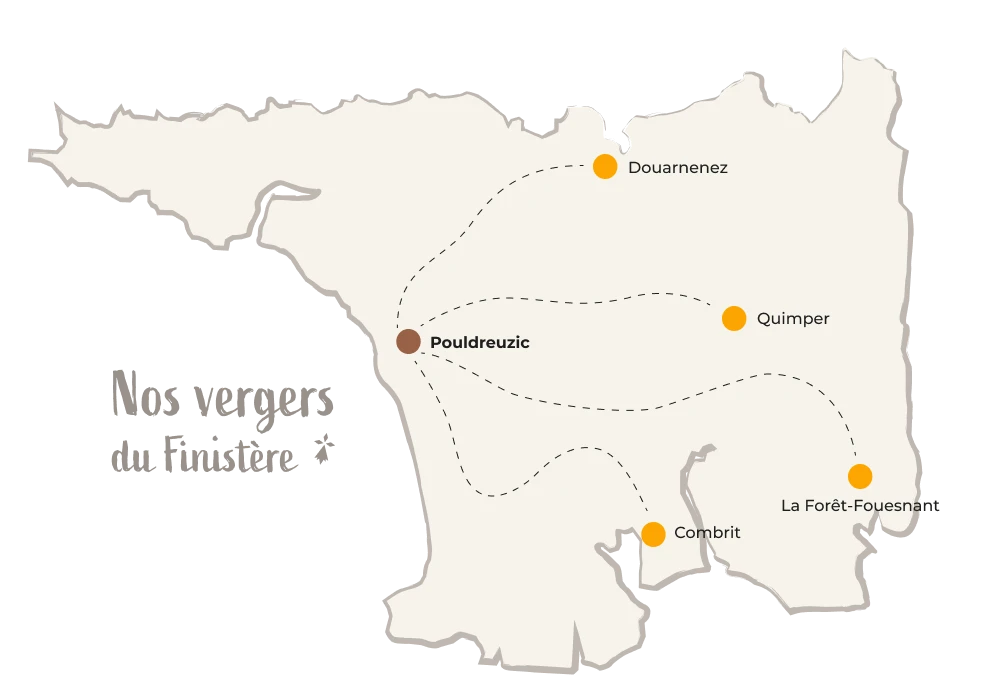
Heirs of a family know-how, we are attached to the tradition and to the methods transmitted to us by our parents and grandparents. We are also concerned about proposing a product of an irreproachable and constant quality. Therefore, we invest regularly in our factory to modernise the workshop in order to elaborate the best ciders.
Recognised for its know-how, the Kerné cidery puts its entire passion into producing fruity and festive ciders, out of apples from our Breton terroir.
Harvested at maturity, the apples are washed after being stored during a short period, in order to guarantee their freshness. A freshness which is essential to liberate their best flavours. The apples are then rigorously sorted out , an indispensable step which guarantees the criteria of quality.
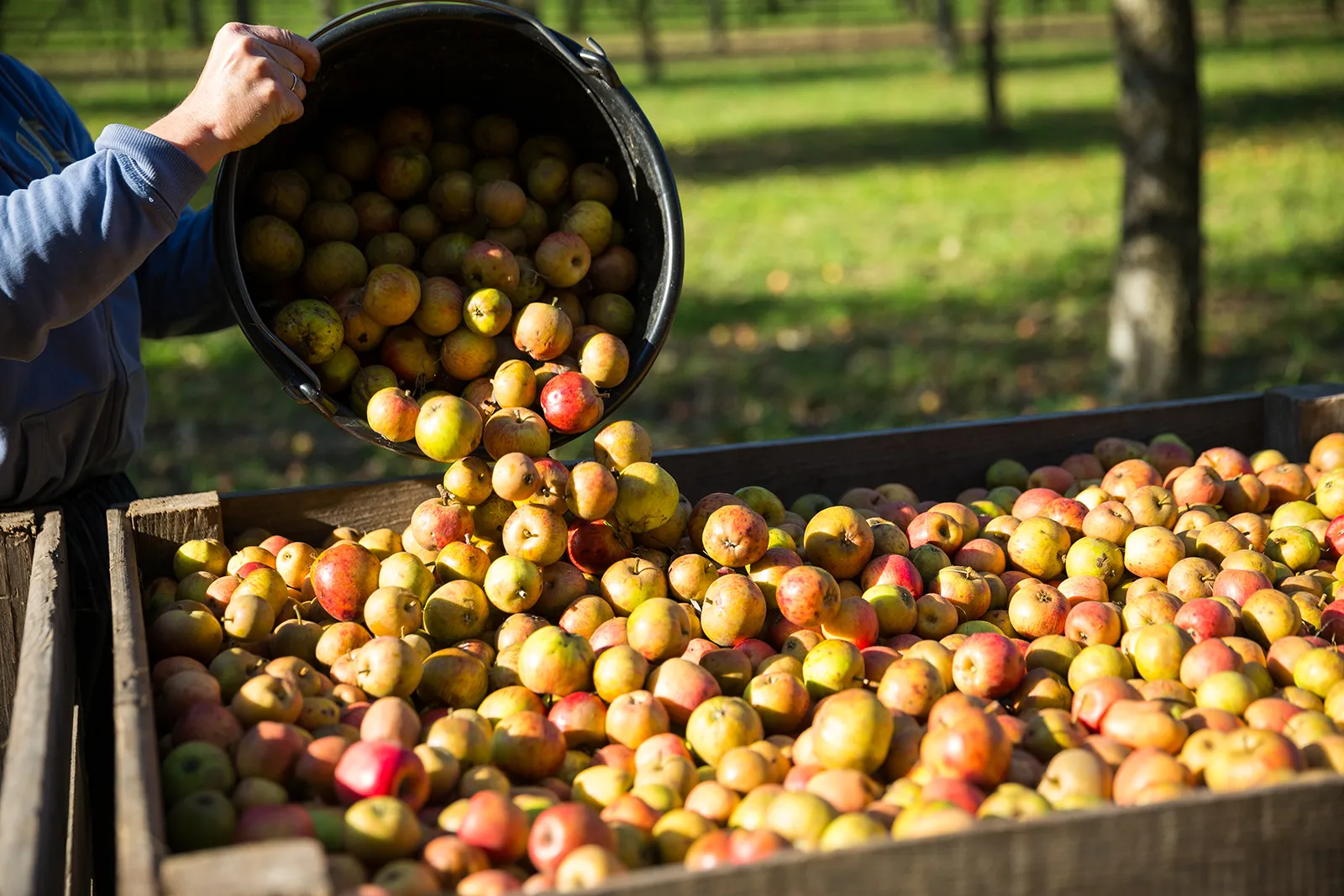
Apples are crushed in order to obtain a pulp which is then pressed.
This pressed product is called the apple must (a cloudy pure apple juice).
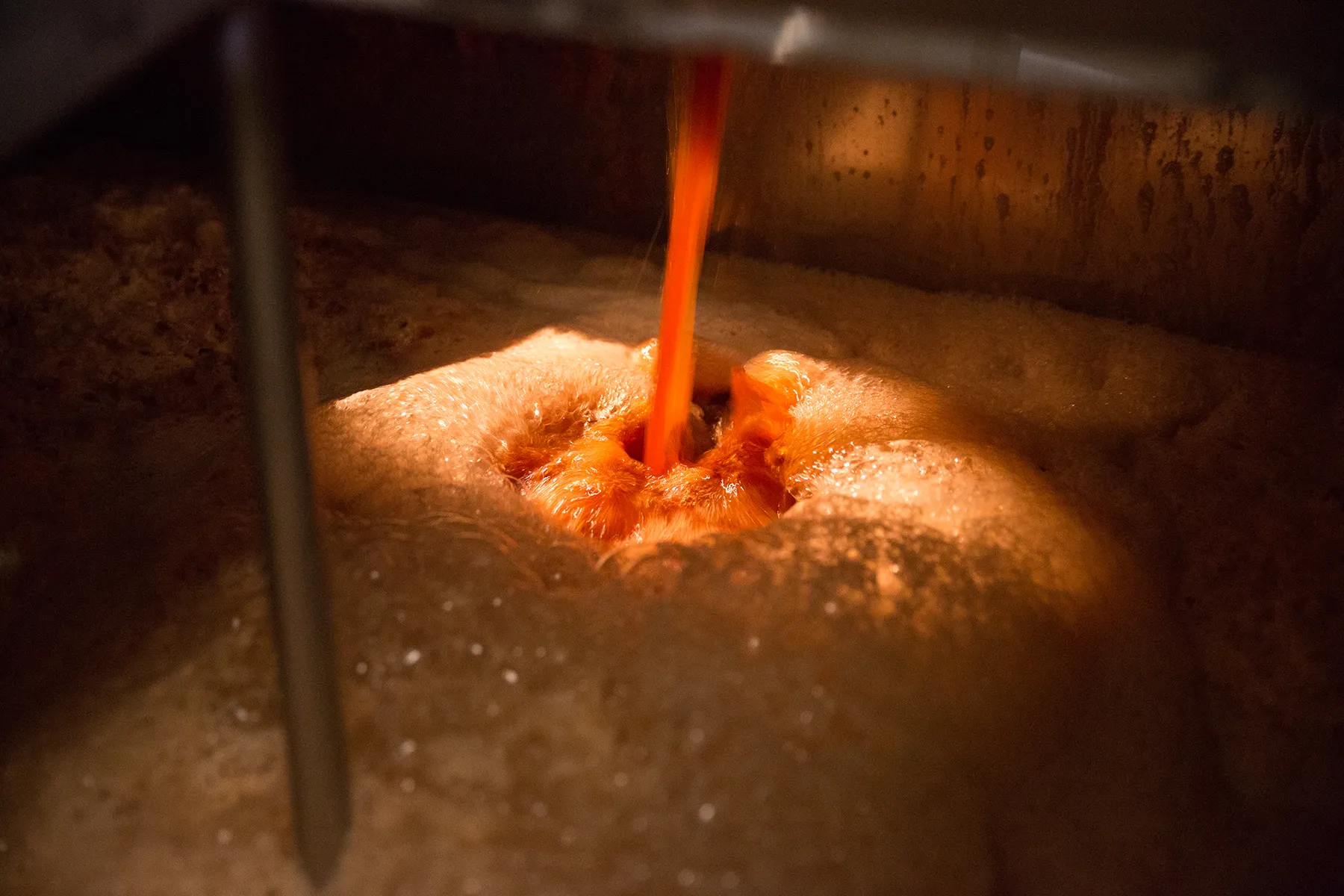
After a week in the tank, the pectins rise to the surface where they form a brown cap. The clarified apple juice is then drawn from the base of the tank.
This phenomenon is made easier by the first bubbles of CO2, which marks the beginning of fermentation. Which will transform the apple juice into cider, under the effect of the natural yeasts on the surface of the apple skins and which come from local plants, more often from the yeasts which are to be found in the surrounding environment, suspended in the air that we breathe.
When the cider comes to maturity, we proceed to the blending of different vat tanks. It is in this blending which resides part of the special know-how of Kerné , resulting in the consistent harmonious taste , so typical of our Kerné ciders. Finally, we filter the cider until it becomes clear by removing the yeast, thus guaranteeing its preservation.
At the cider house, the effervescence of the ciders is obtained naturally and contained until bottling thanks to the use of closed tanks.
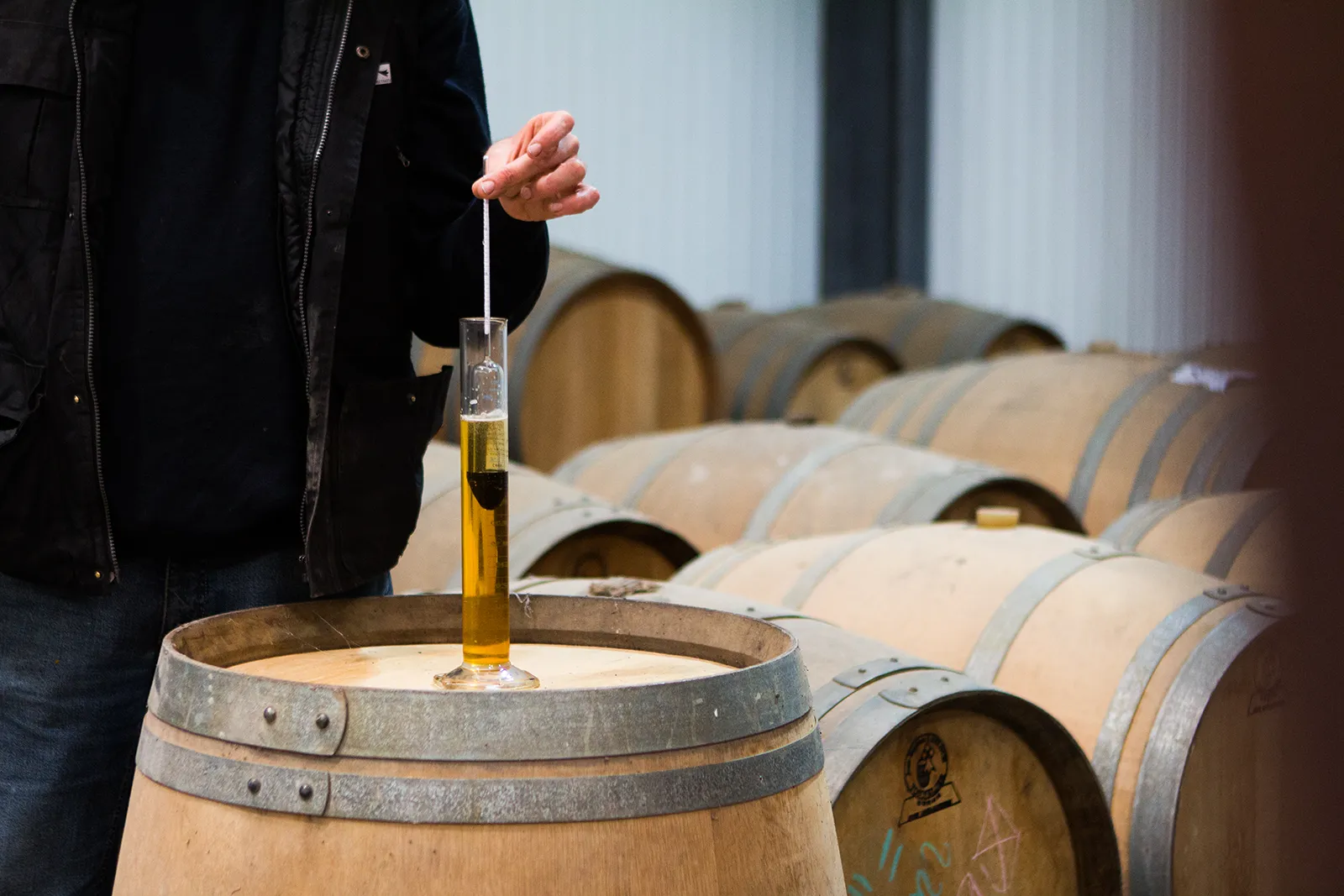
Bottling is carried out from January to August on an automated bottling machine, a technique of over-pressurisation at this stage, prevents the loss of the gas naturally produced by the cider. The bottles are either new or recycled when they come from Kerné’s own sales channels.
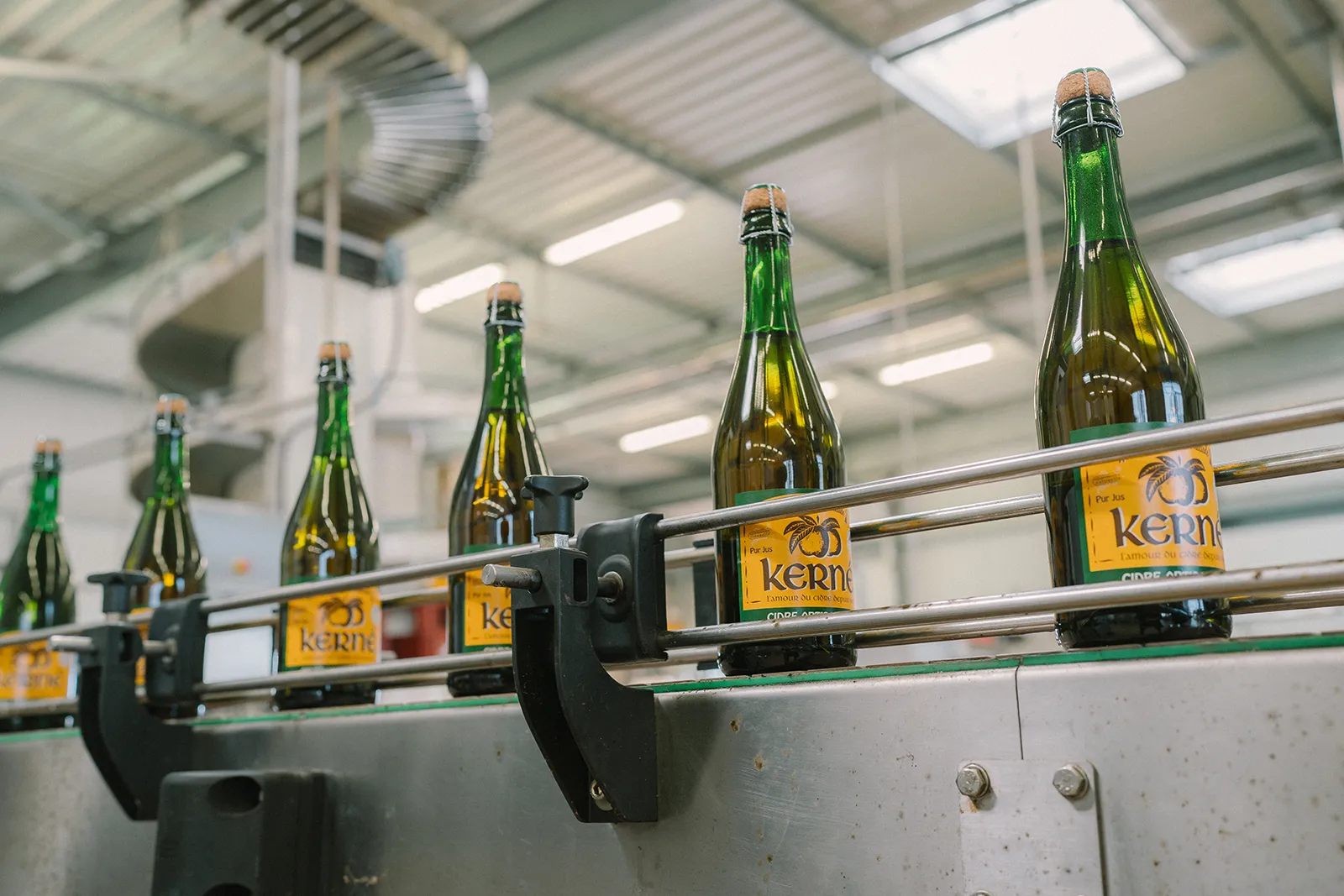
Since the cider house was founded in 1947, we have taken a number of steps to reduce our ecological footprint.
Firstly, we have adopted a deposit system for our bottles to minimise waste production and encourage reuse.
Secondly, we recycle the cardboard we use to package our products, as well as all the elements that come out of our production, such as apple pomace, to make compost or for other uses such as methanisation.
Since 2015, we have also been working in partnership with the Liège 29 association, collecting cork stoppers in our shop in Pouldreuzic. Once recycled, they will be transformed into ecological insulation.
We’re convinced that every little bit helps to preserve our planet, and we’re proud to contribute to this cause at our traditional cider mill in Brittany.

Since 1947, Kerné cider has been made in the traditional, artisanal way in Finistère with apples from Brittany (IGP Bretagne).
Our products regularly win awards at the Concours Général Agricole in Paris, winning numerous medals as well as several Prix d’Excellence (2005, 2006, 2020, 2023) awarded by the French Ministry of Agriculture in recognition of our expertise and the quality of our products.
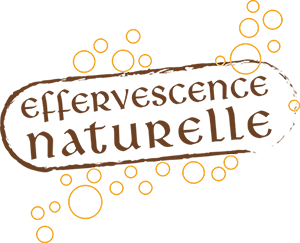


Êtes-vous majeur ?
J'ai moins de 18 ans
Nous sommes désolés mais vous ne pouvez acceder à notre site qui est soumis à une limite d'âge minimum de 18 ans.Conformément à l'article L.3342-1 du Code de la Santé Publique qui dispose de la vente d'alcool à des mineurs de moins de dix-huit ans est interdite, vous déclarez en accédant à cette vente d'avoir dix-huit ans révolus.